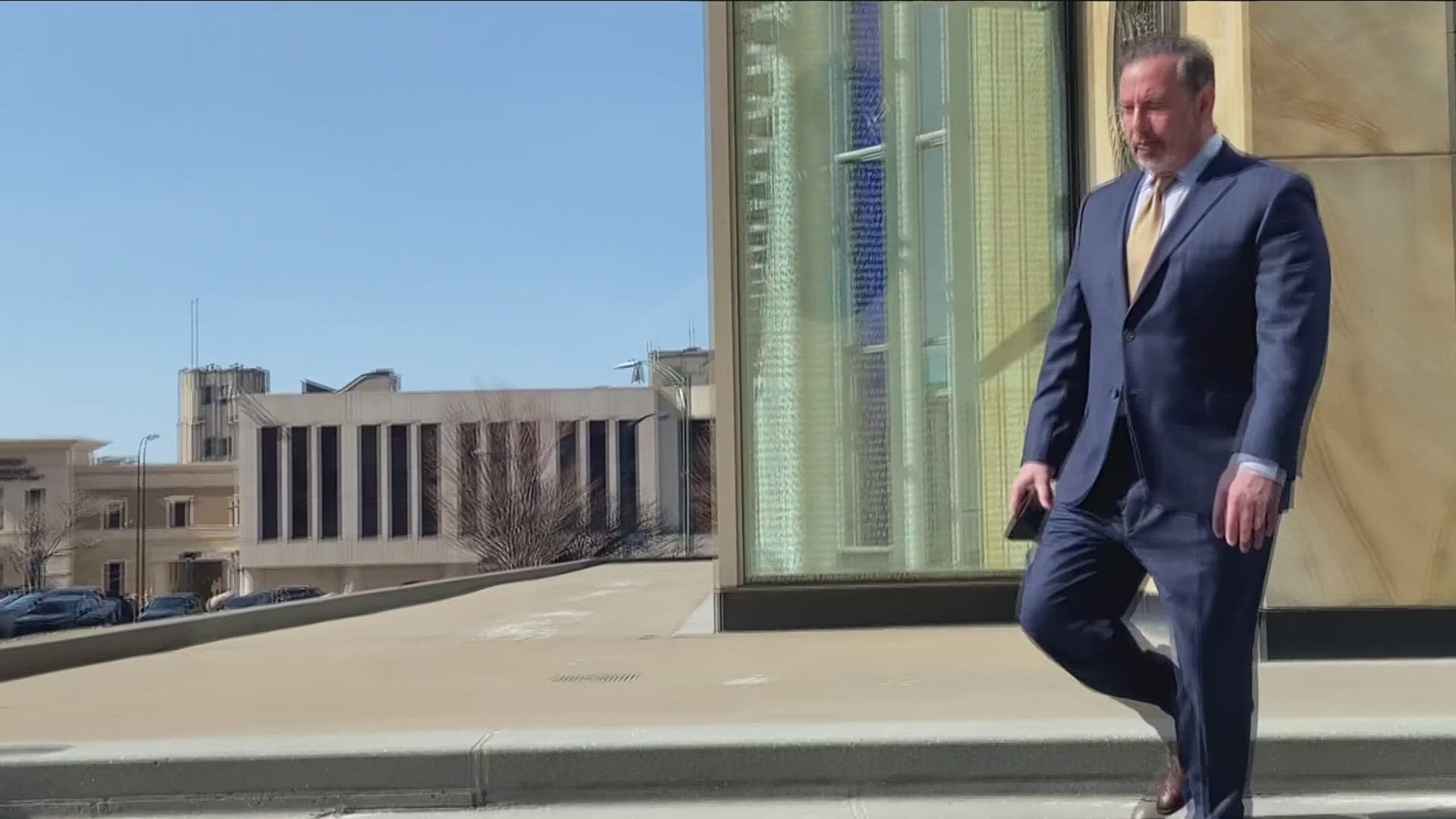BUFFALO, N.Y. — Closing arguments were made Tuesday at the trial of former Buffalo Drug Enforcement Administration Special Agent Joseph Bongiovanni.
Bongiovanni is accused of taking bribes from drug dealers with ties to the mafia, in exchange for tipping them off to investigations, providing the names of informants, and shielding them from prosecution.
The jury will receive its final instructions from US District Court Judge Lawrence J. Vilardo starting at 9 a.m.Wednesday. Vilardo's charge is expected to last several hours, meaning jurors will probably begin deliberating the 15 counts against Bongiovanni sometime early Wednesday afternoon.
The lead prosecutor in the case, Assistant US Attorney Joseph Trippi, spent three and a half hours summarizing the testimony of more than 70 witnesses over the course of the last month and a half.
He began by discussing a box found in Bongiovanni's basement during the execution of a search warrant of his Tonawanda home in 2019.
The box contained a thick file which Bongiovanni allegedly removed without permission from the DEA offices in the Electric Tower upon his retirement four months prior
The file had intelligence reports on a drug ring which Ron Serio testified he'd been running for years along with Michael Masecchia, a former Buffalo Public School teacher whom prosecutors describe as a mafia strongman and through whom Serio would allegedly funnel payments to Bongiovanni, to protect the operation.
Tripi described the file as "the tangible evidence of his corruption. And the sham investigation he ran for years to cover for his friends and co-conspirators."
Prosecutors allege Bongiovanni pretended to run investigations on those he's accused of taking bribes from so that if any other agency was investigating them, he be alerted, and then be able to pass on information to the suspects while also trying to dissuade those other agencies from investigating further.
"There are 600 pages here...evidence to totally expose him as a corrupt double agent," Tripi said.
When it came to their turn, Bongiovanni's lawyers told jurors that a major flaw in the prosecution's case was that they never produced a witness to Bongiovanni taking money.
Serio testified that under the alleged scheme he never paid Bongiovanni directly and Masecchia - who is alleged to be the one who delivered funds to Bongiovanni - never testified.
Further, they noted that while Katrina Nigro, the ex-wife of co-defendant Peter Gerace testified she gave Bongiovanni envelopes that she presumed contained money, she had to admit on cross-examination she never looked inside the envelopes to see if it was cash.
In delivering the defense closing, attorney Robert Singer compared the government's case as being, "like the kitchen sink, when you throw everything against the wall and see what sticks. And nothing here sticks."
Prosecutors insist that one reason Bongiovanni turned "dirty" was that he was under immense financial pressures, brought on in no small part by a costly divorce, and a new, high-maintenance wife who appreciated the finer things in life including clothing, vacations, and a destination wedding. They also produced evidence to show that during the time of the alleged bribery scheme, Bongiovanni had amassed $60,000 in credit card debt.
However, his defense team turned that narrative around by asking jurors that if Bongiovanni received more than $250,000 in bribes over the same time period, then why would he have not paid off his debts?
"Through their financial proctology exam the government concluded there must be bribes...but the biggest problem with that is that his debt was growing despite him receiving all these cash bribes," said Singer, who noted that when Agents bashed in Bongiovanni's front door on June 6, 2019 they found no large sums of cash, no safe full of diamonds or gold coins, nor any pricey artwork on the walls.
"If Joe Bongiovanni truly got paid the cash the government alleges, why did he and his wife not use it to make purchases? Why were they taking out loans to sustain their lifestyle if he was flush with cash? It doesn't make sense."
Throughout the case, the defense branded many of the witnesses who testified against Bongiovanni as drug addicts, liars, or criminals trying to make deals for themselves.

